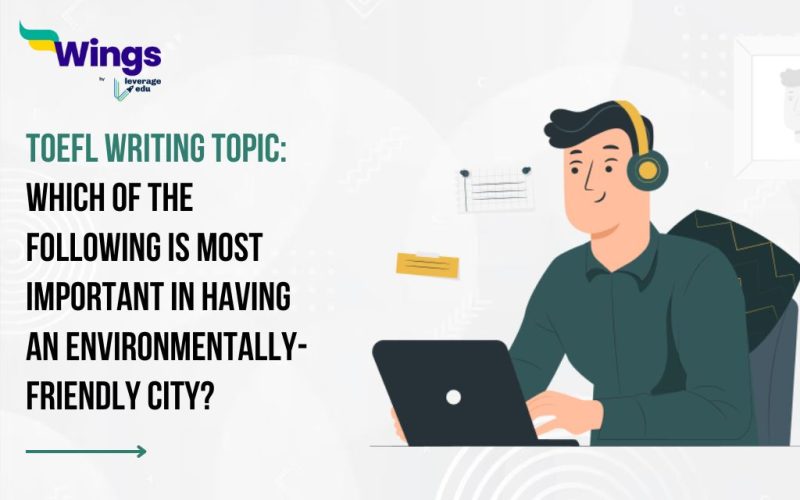a. A city with a public transportation system so extensive that private cars are not needed.
b. A city which requires all residences to use solar power for at least 80% of their energy needs.
c. City whose residences are required to recycle at least 50% of all water used.
Q. Use specific reasons and examples to support your opinion. Do not use memorised examples.
Ans. The idea of building an environmentally friendly city is multifaceted and requires careful consideration of various factors. However, from my perspective, the most vital element is the availability of a robust public transportation system that eliminates the need for private cars.
Public transportation serves a pivotal role in mitigating carbon emissions, standing in stark contrast to private vehicles, particularly those reliant on fossil fuels. The latter significantly exacerbates air pollution and greenhouse gas emissions. Conversely, a public transportation system utilizing renewable sources, like electricity, drastically minimizes pollution per passenger. Furthermore, a fully occupied bus has the capacity to substitute numerous private cars on the road, resulting in a substantial reduction in overall emissions. The collective impact of transitioning to sustainable public transportation holds immense promise for environmental conservation.
Furthermore, an effective public transportation system can mitigate traffic congestion, thereby contributing to enhanced environmental sustainability. For example, cities such as Singapore and Copenhagen showcase well-designed public transportation systems that have had a significant impact on reducing traffic-related issues. Additionally, a well-organized public transportation network can lead to a reduction in the number of individual vehicles on the road, resulting in lower carbon emissions and improved air quality.While solar energy and water recycling play pivotal roles in environmental sustainability, focusing primarily on energy consumption within buildings and water conservation, they do not directly address concerns such as air quality or greenhouse gas emissions.
To sum up, although practices like employing solar power and promoting recycling are integral to crafting an environmentally friendly city, I contend that the establishment of a robust public transportation system has the greatest potential for an immediate and significant impact. It directly addresses critical issues such as air pollution and greenhouse gas emissions and can bring about significant improvements in a relatively short time. Thus, cities aiming for environmental sustainability should focus on the creation of a well-functioning public transportation network.
Are you preparing for TOEFL? Check out the video given below👇 to know about the TOEFL preparation.
| Related Blogs | ||
| TOEFL Preparation Tips & Strategies You Must Know! | TOEFL iBT – Exam Dates, Fee, Eligibility, Preparation | Types of TOEFL Exam: IBT, ITP & CBT … |
| TOEFL Exam Pattern 2023: Check Revised Pattern & … | TOEFL Exam 2023: Latest Updates, Format, Registration … | TOEFL Eligibility Criteria 2023: Check Qualification, Age … |
Download the Leverage App today.


Need help to prepare for TOEFL? Check out the best TOEFL preparation courses in the market offered in a live training environment by trusted educators. If you want to ease your study abroad journey, then call us at 1800-572000.


 One app for all your study abroad needs
One app for all your study abroad needs












 60,000+ students trusted us with their dreams. Take the first step today!
60,000+ students trusted us with their dreams. Take the first step today!